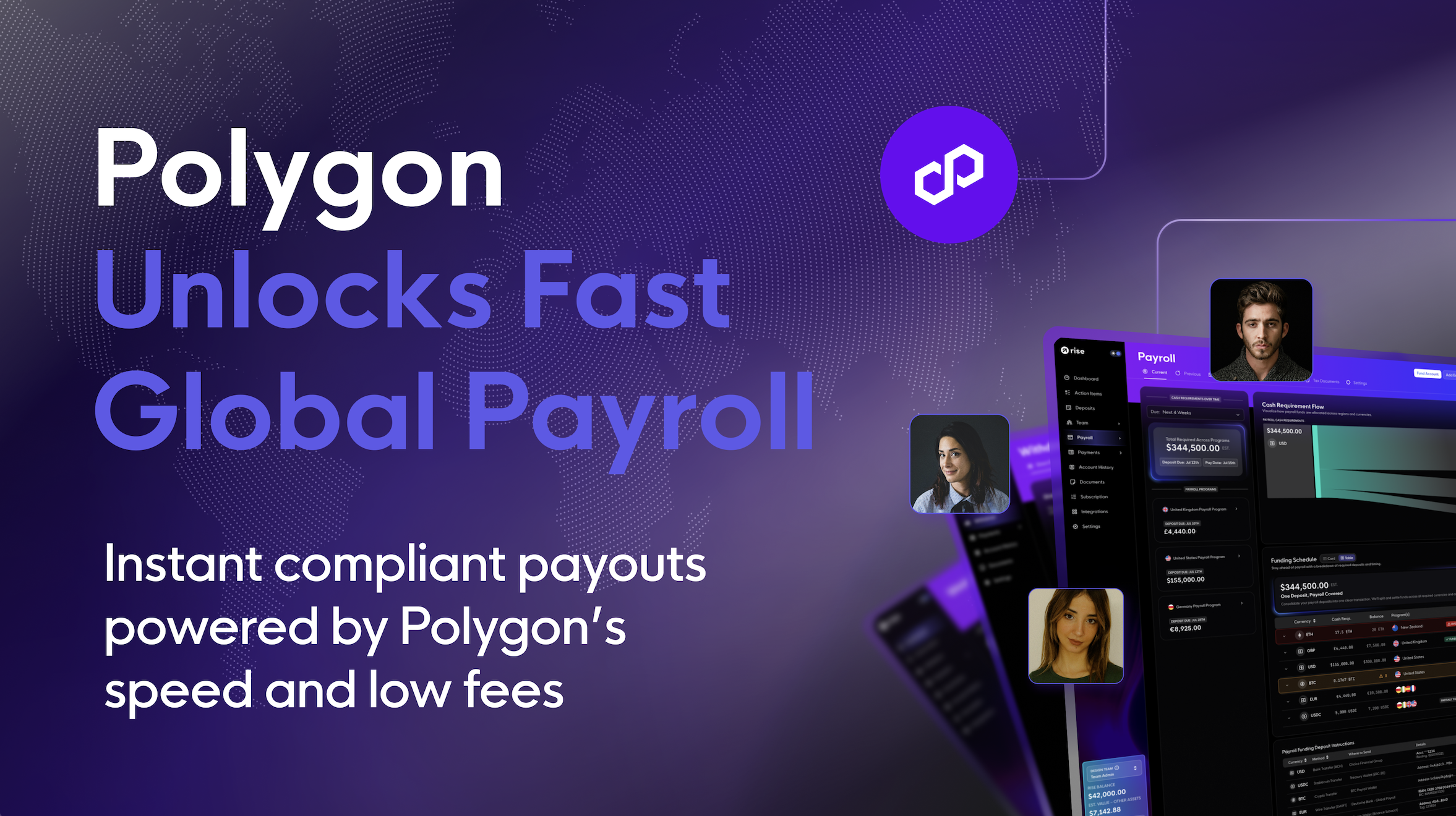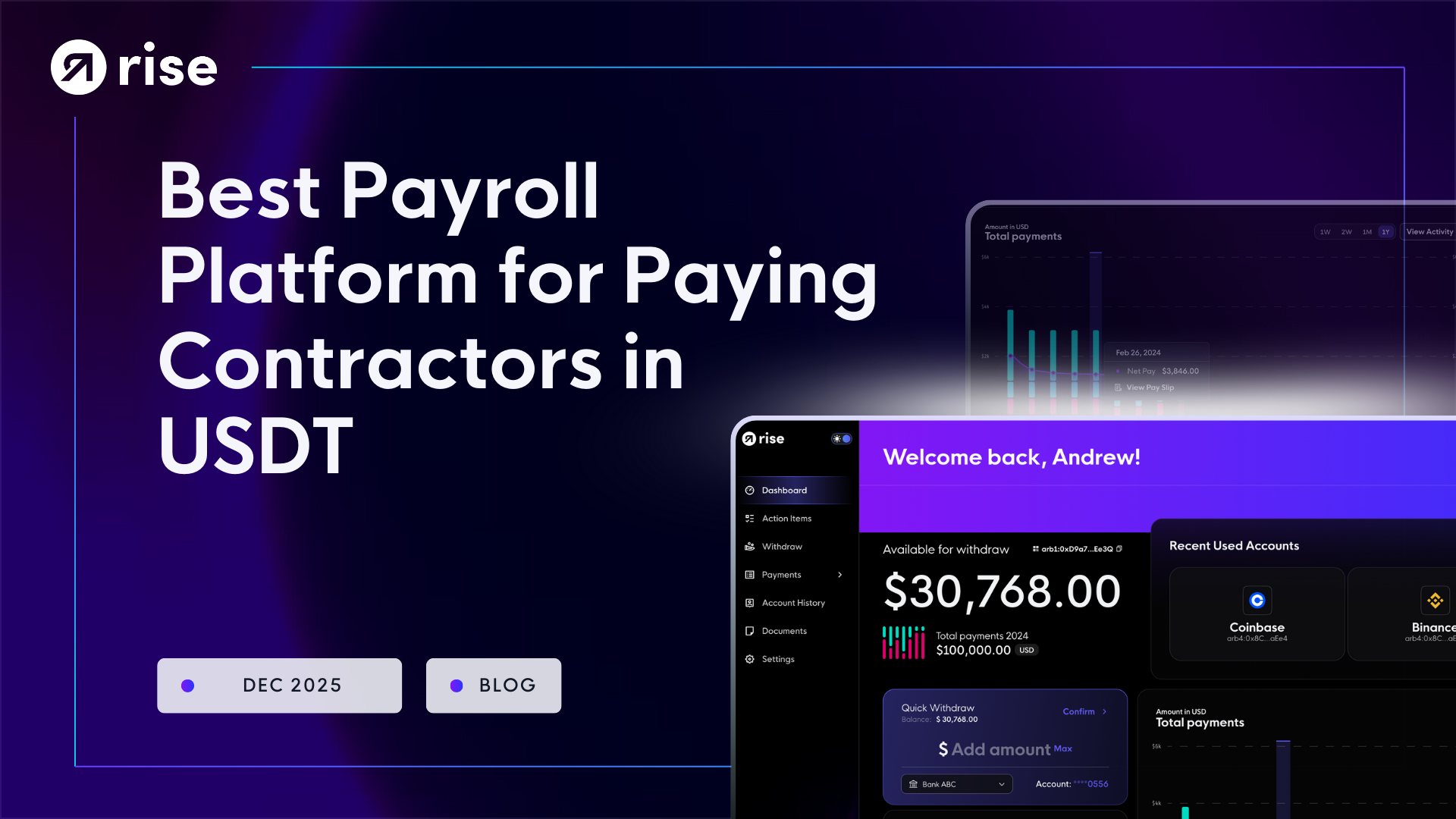Hybrid payroll systems blend traditional processes with crypto payments, providing an adaptive solution that meets today’s complex payroll challenges.
In this article, we dissect the practicalities of hybrid payroll, its role in compliance and efficiency, and its impact on a business’s bottom line.
Understand how your organization can benefit from this streamlined approach to payroll management.
Key Takeaways
- Hybrid payroll integrates traditional and digital payment methods, enhancing efficiency by streamlining business processes and providing employees with financial flexibility, including options for currency selection and reduced transaction fees.
- Hybrid payroll systems offer scalability and compliance across various industries and borders, easing global workforce management through automated tax filing and compliance tracking, thus catering to businesses of all sizes.
- The implementation of hybrid payroll systems in HR workflows automates tasks and supports strategic decision-making, ultimately improving operational efficiencies, reducing costs, and helping businesses to manage employee lifecycles effectively.
What is Hybrid Payroll?
Hybrid payroll is a modern payment infrastructure that combines traditional payment methods with digital platforms to provide businesses with a flexible, efficient, and compliant way to manage their workforce's compensation.
Hybrid payroll includes local fiat currency and cryptocurrency.
Navigating the New Era of Payroll Management
The workplace dynamics are shifting, and the one-size-fits-all approach to payroll no longer cuts it. The hybrid and dual payment systems, which blend traditional and digital payment methods, are increasingly seen as the future of global workforce payments.
This shift towards hybrid payroll practices is driven by global economic trends, the rise of digital financial technologies, and a growing emphasis on economic empowerment and flexibility within the workforce.
This new era offers a win-win proposition for both employers and employees. Employers can streamline their business processes, leading to lower operational costs and enhanced efficiency.
Employees, on the other hand, enjoy faster access to their earnings with reduced transaction fees, and the option to choose between various currencies, thus gaining protection against economic instabilities.
Embracing Technological Integration
In the realm of payroll management, cloud-based solutions are no longer a novelty but a necessity. They have transformed the way businesses handle payroll, offering scalable, flexible, and remotely accessible solutions. Imagine having the power to manage your payroll from anywhere, at any time.
But the benefits of these systems go beyond convenience. They can be seamlessly integrated with other business systems such as HR and accounting software, leading to streamlined payroll processes.
Additionally, the integration of artificial intelligence can automate repetitive tasks within payroll processes, enhancing accuracy and efficiency. This means fewer errors and more time for businesses to focus on their core competencies.
Ensuring Compliance Across Borders
In today’s globalized business environment, ensuring compliance with tax regulations across various jurisdictions can be a daunting task. Here’s where hybrid payroll systems come to the rescue.
They enhance compliance with tax regulations through automated tax filing processes, with some services even guaranteeing error-free submissions.
To aid businesses, these systems:
- Track federal and state mandate compliance
- Aid in accurate tax payment calculations
- Enable real-time reporting for various compliance needs, such as the Affordable Care Act (ACA)
The Rise hybrid payroll platform, is tailored for global workforce management, offering specific solutions to navigate international hiring compliance challenges.
This means companies can remain compliant with evolving labor laws by using legal counsel or relying on payroll management services that automatically update with the latest regulations.

Enhancing Payment Flexibility
In the battle for top talent, offering payment flexibility can give employers a competitive edge. Employers can enhance their value proposition and attract top talent in the competitive global market by offering payment options in both fiat and crypto.
This flexibility can aid in retaining skilled professionals and staying ahead of the competition..
In addition, giving employees the choice to receive pay in fiat or crypto allows them to align their compensation with personal preferences, financial goals, and the economic conditions of their country.
Moreover, the use of stablecoins in payroll serves as a volatility-free cryptocurrency option, ensuring employees receive the full value of their wages at the time of payment.
The Premier Payroll Provider for High Growth Industries
The versatility of hybrid payroll systems is best demonstrated by their adaptability to businesses at any stage of growth and catering to a variety of niches. These systems can scale with the company, ensuring that payroll processes grow in tandem with business expansion, regardless of the number of employees or locations.
This scalability is coupled with cost-effectiveness, making hybrid payroll a financially sound choice for businesses across different sectors, particularly those with stringent budget considerations.
In most high growth industries, such as financial services, manufacturing, and retail, hybrid payroll solutions are advantageous for optimizing costs and enhancing processes.
Moreover, hybrid payroll systems ensure adherence to compliance requirements within heavily regulated industries, aiding in the management of state and federal laws.
Tailored Solutions for Every Size Business
Whether you’re a small startup or a large multinational corporation, hybrid payroll services can accommodate your unique needs. They can handle complex payroll structures through various pay schedules and rates.
To meet the preferences of diverse businesses, hybrid payroll systems provide multiple payment options, including direct deposit, paper checks, and prepaid debit cards. This level of customization ensures that every business, regardless of its size or type, can benefit from a hybrid payroll system.
Small businesses and size businesses, especially those with hybrid workforces, stand to gain significantly from implementing hybrid payroll systems.
By avoiding payroll errors and ensuring regulatory compliance, these mid size businesses can focus more on their core operations and less on administrative tasks.
Driving Business Transformation
Hybrid payroll systems are not just about payroll; they are a catalyst for business transformation. By integrating payroll processes with overall strategic objectives, these systems can catalyze business transformation.
Real-time financial data access provided by payroll systems supports quick and informed strategic decision-making.
Studies suggest that adopting a hybrid payroll model can potentially increase profits by 10% to 20%, exemplifying the positive financial impact.
Maximizing Talent Acquisition and Retention
The role of hybrid payroll solutions in shaping the future of work cannot be overstated. They facilitate remote and hybrid work environments, a factor that is increasingly important for attracting and retaining a modern workforce.
Moreover, by enabling payment in cryptocurrencies, hybrid payroll systems offer financial inclusion. This allows unbanked or underbanked employees to engage in the global economy, thereby enhancing the employer’s ability to attract a diverse workforce.
Streamlining Human Resources Workflows
The integration of hybrid payroll systems into HR workflows can bring about significant efficiencies. These systems encompass onboarding tools, automating tasks like document e-signing and payroll setup, enhancing the new employee experience.
By facilitating HR management, hybrid payroll platforms automate payroll, scheduling, and compliance, ensuring a streamlined employee lifecycle from hiring to retirement.
This integration of HR systems and automated solutions allows HR professionals to manage employee data more effectively and remain compliant with labor laws, especially vital for a hybrid workforce.
The adoption of hybrid payroll systems plays a pivotal role in driving HR efficiencies, enhancing one’s ability to manage tasks with agility and accuracy, positioning companies for sustained growth.

Automating Payroll Processes
Automation is the cornerstone of modern payroll management as it can:
- Reduce manual data entry mistakes
- Automate manual payroll tasks, such as tax calculations and payslip generation
- Ensure adherence to labor laws
- Enhance the accuracy of payroll calculations.
Hybrid payroll solutions improve the effectiveness of finance and HR teams through AI-powered workflows and streamlined dashboards.
By automating after-hire tasks such as:
- Reporting new hires
- Managing employee data
- Calculating and processing payroll
- Generating tax forms
They allow teams to concentrate on strategic initiatives rather than routine administrative duties. This makes payroll processes more efficient, reduces operational costs, and facilitates quick access to analytics and report generation, which supports more informed decision-making.
Integrating Staffing and Scheduling
Staffing and scheduling are integral aspects of HR management, and their integration with payroll can bring about significant benefits. Hybrid payroll platforms provide centralized management of HR functions, aligning staff scheduling with actual business needs, and managing shift eligibility and coverage gaps.
Automating integration with payroll leads to reduced manual tasks, fewer errors, and enhances operational efficiencies, supporting strategic scheduling and workforce management. Integrated staffing and scheduling foster adherence to labor regulations and improve employee trust by ensuring accurate and timely compensation.
Hybrid payroll solutions in sectors like hospitality offer advanced features for managing shifts based on specific needs, such as certifications or team structures.
Prioritizing Employee Safety and Security
In the era of digitalization, data security is of paramount importance. Hybrid payroll services take employee data security and financial stability seriously, with security measures serving as a cornerstone.
Companies must ensure that their payroll provider is compliant with relevant tax regulations and that they have robust security measures in place for protecting sensitive employee data.
Hybrid payroll platforms offer the following benefits:
- Comprehensive Occupational Safety and Health Administration (OSHA) tracking, management, and reporting
- Role-based access controls to prioritize employee safety and security
- Mitigation of data security risks through partnerships with experienced payroll providers
- Employee training and consistent support for ongoing compliance and employee satisfaction
The Financial Engine of Your Business
Hybrid payroll systems serve as the financial engine of your business. Cloud-based solutions improve operational efficiencies, which are fundamental to effective financial management in businesses. Enhanced operational efficiencies lead to increased competitiveness in the market.
Acting as a catalyst, cloud-based solutions are a crucial aspect in driving growth for businesses within competitive markets. They can help businesses reduce costs, offer real-time financial insights, and foster workplace innovation, thus acting as a key element in the financial success of a business.

Reducing Operational Costs
One of the major advantages of cloud-based payroll systems is their potential to reduce operational costs. They help businesses lessen the need for extensive IT infrastructure, leading to reduced costs for equipment and management staff.
A cloud based solution enables significant cost savings in real estate and storage, as cloud-based payroll solutions, a type of cloud based solution, contribute by:
- Minimizing the need for physical server storage or office space
- Decreasing expenses by minimizing the need for physical infrastructure
- Reducing manual administrative tasks
- Reducing reliance on paper-based processes, saving expenses on paper, printing, ink, and related supplies.
Offering Real-Time Financial Insights
Real-time data processing in payroll systems is a game-changer. It enables businesses to have immediate access to payroll information, thereby supporting quick strategic decision-making.
The instantaneous access to payroll data allows organizations to make agile financial decisions and adapt to changes affecting payroll swiftly.
Analytics in payroll management empower businesses to make data-driven decisions regarding their workforce and identify optimization strategies. Hybrid payroll systems offer comprehensive reporting capabilities, which play a crucial role in monitoring workforce performance and informing strategic decisions.
Fostering Workplace Innovation
Workplace innovation is at the heart of business success, and hybrid payroll systems can play a significant role in fostering it. By automating administrative tasks, these systems allow employees to work smarter, concentrating on creative and strategic aspects of their work.
The facilitation of connections among employees, as supported by hybrid payroll systems, creates an environment conducive to the generation of innovative ideas and solutions.
This shows how hybrid payroll systems can go beyond simply managing payroll to fostering a culture of innovation and creativity in the workplace.
Hybrid Payroll in Action: Case Studies and Success Stories
The proof of the pudding is in the eating. So, let’s look at some real-world examples of how hybrid payroll systems have transformed businesses.
From a national retail chain redesigning their entire payroll structure using a hybrid model, to a tech startup supporting rapid staff expansion with a cloud-based hybrid payroll system, the success stories are aplenty.
Healthcare providers have managed to reduce time spent on payroll management by 40%, while logistics companies have efficiently handled seasonal workforce fluctuation without compromising payroll accuracy.
Post-adoption of hybrid payroll, NGOs have noticed a surge in employee morale as they were given the option to receive payments in a mix of traditional and digital currencies.
Overcoming Implementation Challenges
Adopting a new system is never without its challenges, and hybrid payroll systems are no exception. Companies have to deal with multiple challenges including:
- Compliance with diverse labor laws
- Transitioning from manual to automated processes
- Integrating payroll with other HR systems
- Adopting cloud-based solutions
But these challenges are not insurmountable. Services like Rise can help businesses with:
- Global contractor onboarding
- Performing Know Your Customer (KYC) checks
- Managing different forms such as 1099 & W9/W8BEN necessary for international teams
With the right support, businesses can smoothly transition to a hybrid payroll system.

Measuring the Impact on Business Growth
The impact of hybrid payroll systems on business growth is measurable and significant. Companies that switched to these systems have reported a reduction in payroll processing errors due to fewer manual entries. They also observed a 20% average cost savings in payroll management.
Employee satisfaction improved as a result of faster and more accurate payroll processing with hybrid systems. The integration of hybrid payroll has led to better financial performance, with companies experiencing an average of 7% higher profit margins.
Smaller businesses have reported noteworthy growth, attributing it to the scalability and flexibility of hybrid payroll systems.
Feedback Loop: Listening to Employers and Employees
Feedback loops play a crucial role in the development and refinement of hybrid payroll systems. Services like Rise take input from HR and legal experts, illustrating an effective feedback loop with employer and professional insights.
Employee feedback on hybrid payroll systems reveals a strong preference for having the option to coordinate in-office workdays among team members, emphasizing the need for system flexibility.
Summary
In conclusion, hybrid payroll systems offer a forward-thinking solution for modern businesses. By blending traditional and digital payment methods, they provide financial adaptability, streamline processes, and enhance efficiency.
As the financial engine of your business, a hybrid payroll system can drive growth, foster workplace innovation, and position your company for success in the competitive global market.
To learn more about hybrid payroll, you can simply download our ebook below:
.jpg)
Frequently Asked Questions
What is hybrid payroll?
A hybrid payroll system combines traditional and digital payment methods to provide businesses with flexibility, streamlined processes, and improved efficiency.
How can hybrid payroll systems enhance compliance with tax regulations?
Hybrid payroll systems can enhance compliance with tax regulations by automating tax filing processes, tracking federal and state mandate compliance, and providing real-time reporting for various compliance needs. This can streamline the tax compliance process and ensure accuracy.
What are the benefits of integrating staffing and scheduling with payroll?
Integrating staffing and scheduling with payroll can lead to reduced manual tasks, fewer errors, enhanced operational efficiencies, and improved employee trust by ensuring accurate and timely compensation. This integration can streamline processes and improve overall productivity.
How do hybrid payroll systems foster workplace innovation?
Hybrid payroll systems foster workplace innovation by allowing employees to focus on creative and strategic tasks through the automation of administrative duties. This helps to promote a more innovative and productive work environment.
What is the impact of hybrid payroll systems on business growth?
Hybrid payroll systems can have a significant positive impact on business growth, including reduced errors, cost savings, improved employee satisfaction, and better financial performance, making them particularly beneficial for smaller businesses.



















